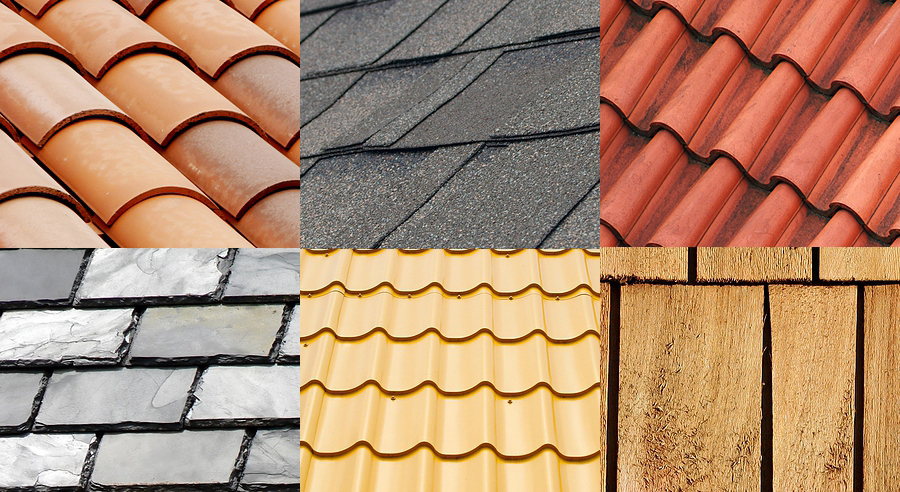Choosing the Best Roofing Materials to Use on Your Home
Your home’s roof is one of the most vital systems to its structural integrity. Not only does the roof keep things like water and debris from falling directly into your home, it also sheds water and diverts it away from the home’s foundation. On top of that, roofs protect from solar damage caused by UV rays, and fire-resistant roofing materials slow the spread of fire across the roof where it could do some of the most damage to your home.
In order to reap all of these benefits, you must choose a roofing material that can complement the needs of your home design as well as your particular climate. The wrong sort of roof can lead to structural weakness, or it could create problems like ice dams.
To help you decide which roofing material would work best for you, here are some of the options you have at your disposal:
Asphalt Shingles
Asphalt shingles are the most popular roofing material for the Philadelphia area and the entire United States. The Asphalt Roofing Manufacturer’s Association estimates that more than 80 percent of homes in North America use asphalt shingles as their main roofing material. Reasons for choosing this material above others include:
- Wide variety of material choices to make home more eco-friendly, absorb more or less sunlight as needed, increase water-resistance, etc.
- Wide variety in look and shape of materials
- Most materials are fire-resistant
- Relatively durable
- Quick to install
- Low cost — $70 to $120 per 100 sq ft
The last two points in particular are the most attractive to homeowners, since replacing a roof is something they want to get done cheaply and as fast as possible. This low cost comes with the tradeoff that the material will not last as long as most roofing materials. The average shingle roof only last 15 to 25 years.
Clay and Concrete Tiles
These materials help create the iconic “Spanish Mission” architectural look seen in homes throughout the Southwest and West Coast. They are great for hot weather since air can circulate underneath the tiles.
For colder climates like the Philadelphia area, they are less favorable since they have a heavy weight and can gradually get filled with snow melt, placing more pressure on the roof membrane to prevent leaks. They are also heavier than most roofing materials, so structural support must be added, especially in anticipation of snow loads. Anyone in the Northeast or cold climates in general should reinforce their roof with extra support and waterproofing measures before installing hung roofing tiles.
Metal Roofing
Metal roofs are an excellent choice for homes because of their beauty and longevity. The materials are lightweight and require little to no roof modifications to install. They also help regulate the home’s temperature by reflecting sunlight in warm weather and absorbing UV heat in the winter to help melt snow.
Speaking of snow melt, a metal roof can shed snow like water off a duck’s back, making them great for the Philadelphia area. Some homeowners even install heat cabling underneath the roof to help facilitate this process.
The only major drawback to a metal roof is that it can be quite expensive at $100 – $300 per 100 sq ft. Some designs like standing seam roofs or certain metal shingle products can cost $600 – $800 per 100 sq ft.
This added investment pays off in the form of a roof that will last between 40 – 75 years or longer. Well-maintained metal roofs can even last several centuries. The Hildesheim Cathedral was built in 1015 AD, and its original copper roof still remains intact.
Other Products
- Wood Shakes and Shingles look beautifully rustic and unique. They are fairly difficult to install, prone to occasional damage, and cost $100 – $150 per 100 sq ft, but they can last 25 to 30 years and have a stunning architectural effect.
- Slate Tiles similarly look amazing. They are fire-resistant, incredibly durable and ultimately recyclable. Cons include that they cost upwards of $600 per 100 sq ft and require roof structure reinforcement. They may also absorb water and crack during freezing weather. Like metal, they can last almost a century when well-maintained.
- Synthetic Materials mimic the look of slate, wood, clay and other materials. You can ask a roofing contractor about the products available in the style and price range you want.
Anyone looking for a roof replacement or roofing contractor to add one of these desirable materials to their new roof can find the best price and service using ServiceWhale. A quick, free sign-up means you can compare real quotes from contractors in your area without having to wait for an onsite estimate. Click here to get started.





Comments
Comments are disabled for this post